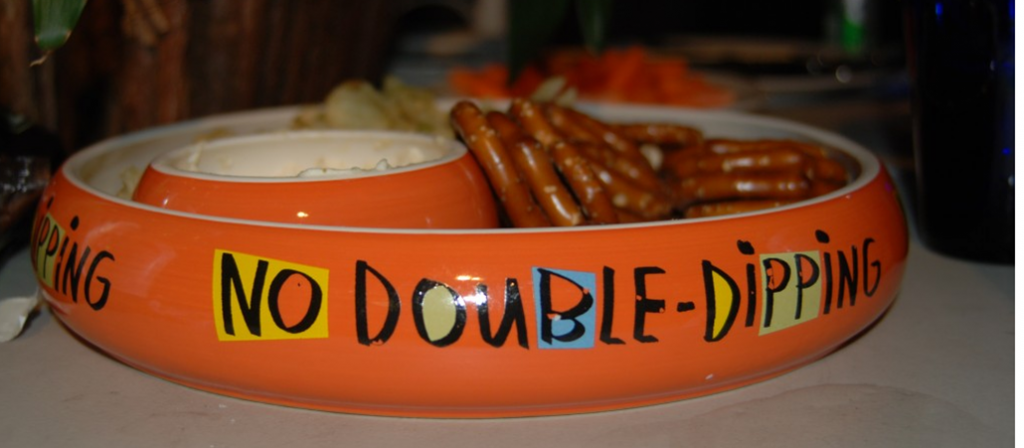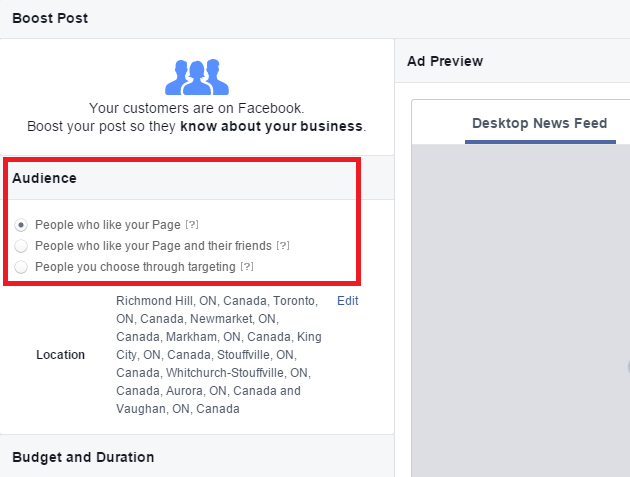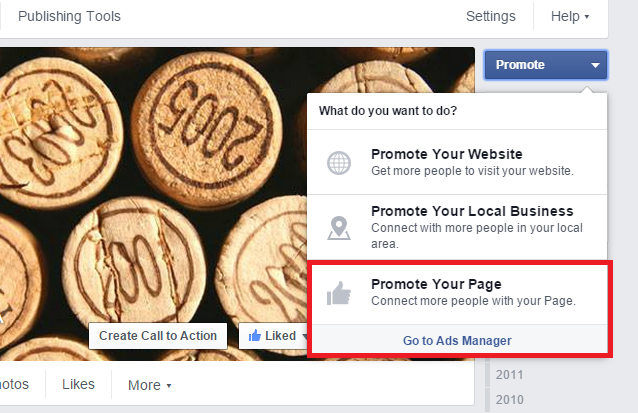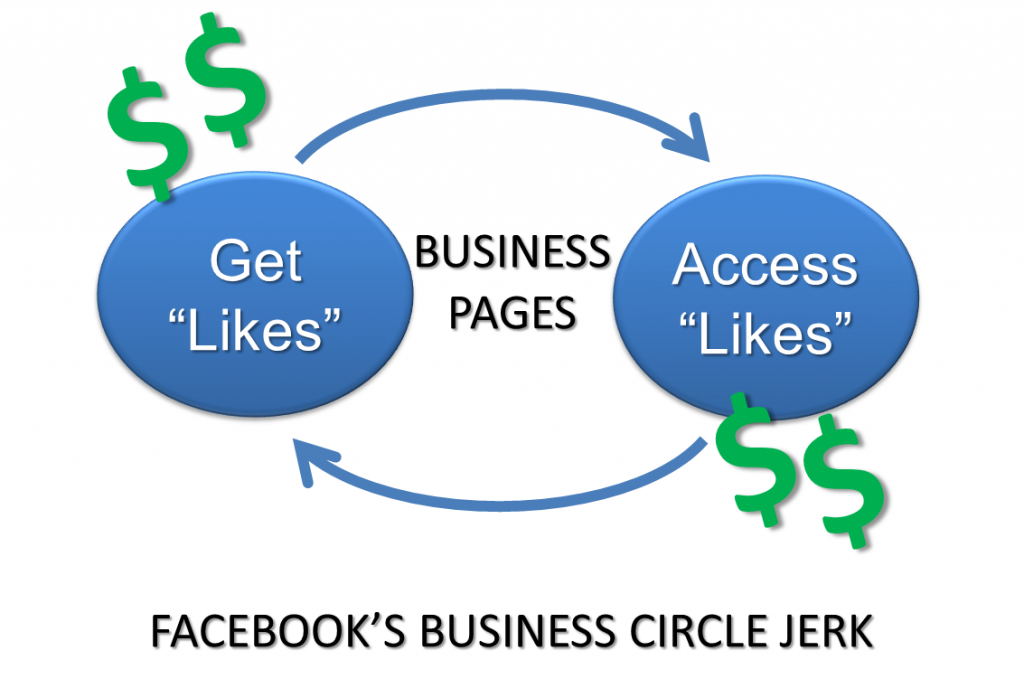Looking through some of my most recent articles on Sensei’s blog, one would think I’m on some mission to malign social networks. Over the last two weeks I’ve questioned Instagram’s new advertising platform in one post and the questionable use of “influencers” by brands on that same network in another. And this is certainly not the first time I’ve questioned the value of Facebook for business. It wasn’t that long ago that I told readers that businesses don’t necessarily require a Business Page on Facebook.
I’m not trying to focus my content on calling out social networks, but as the guiding principle behind my content strategy is to share the real-time experiences and debates we at Sensei Marketing have internally or among clients, today’s article will, once again, focus on another manner in which Facebook is ripping off businesses.
In truth, I utilize (and benefit from, in varying degrees) all these networks for various client projects I manage. It’s that experience, and the resulting lessons learned, that form today’s commentary.
Who Really Owns Your Community?
Over the past twelve months or so, Facebook has made a series of changes to its algorithms to “improve the user experience for individuals.” These well-documented (and criticized) changes to business pages include deleting “likes” (essentially followers) from business pages that have not visited or engaged in some time. Facebook claims that this last change is intended to improve the business’s insights and reach.
This wouldn’t be that big a deal if Facebook had provided a rationale to businesses for the changes, explained how it would benefit them, and then offered an opt-in function for businesses to have the Likes that Facebook deems unnecessary deleted. But that would require Facebook to acknowledge that our businesses own our followers and as we all know (or should know), we don’t; Facebook owns the audience of every business on its platform.
Double-Dipping – How Facebook Rips Off Businesses
The reality that Facebook owns a business’s community may not be that big of a deal if you factor in the fact that it provides businesses the opportunity to create and manage brand profiles for free.
Or is it free?
One of Facebook’s more notorious algorithm changes saw it throttling the number of followers who see its post. Reports indicated that somewhere around 4% of a business’s total audience will have its post included in followers’ newsfeeds.
So for a business to reach those people who have indicated they WANT to see posts from the business by “Liking” the business’s Page, they must pay for their posts to be seen by “People who like your Page.”
I understand the rationale for paying to reach people who have not Liked a business page; that’s basic advertising. However, for Facebook to provide a platform where businesses are encouraged to create interesting content that drives people to its network – from which it captures reams of personal data and generates a healthy profit through targeted advertising – to then request a payment to reach those people, well, it just feels like ransom to me.
Playing devil’s advocate, I’ll argue once again that the social network is offered at no charge to businesses so we should not be complaining. But that’s the thing…it’s no longer free.
Every day Facebook encourages me to “Get more followers” for my businesses and those I manage by “Promoting Your Page.” Then, once I have an audience that I’ve paid for, I’m required to pay more money if I want to reach those people whom I’ve just paid to acquire (through promoted posts or content marketing efforts).
Huh? This business model is essentially an advertising “circle jerk.” You pay to build an audience then you’re forced to pay more to reach that same audience.
Imagine a magazine’s marketing team charging a business for an ad in its publication but then black out that ad unless the business pays more money for subscribers to actually see the ad.
What would your reaction be to such an advertising policy? Any sane businessperson would be outraged and walk away. Yet Facebook is getting away with it.
Or is it? Many businesses are simply fed up and walking away from the game. Eat24, the popular food delivery and take out business – that you’d think would benefit tremendously from Facebook marketing – is one of many businesses to essentially quit the network, and they did it in style. Here’s an excerpt from Eat24’s hilarious breakup letter to Facebook.
We’d love to say “It’s not you, it’s us” but it’s totally you. Not to be rude, but you aren’t the smart, funny social network we fell in love with several years back. You’ve changed. A lot.
When we first met, you made us feel special. We’d tell you a super funny joke about Sriracha and you’d tell all our friends and then everyone would laugh together. But now? Now you want us to give you money if we want to talk to our friends. Now when we show you a photo of a taco wrapped with bacon, you’re all like “PROMOTE THIS POST! GET MORE FRIENDS!” instead of just liking us for who we are. That’s hella messed up.
Who owns them? Well, the question should be “Who should own your business’s Facebook followers” because we know the answer. Facebook owns your followers, you do not.
Non-Profit and Charities
I’ve always stated that I don’t begrudge any business making money, even those I particularly dislike (such as Klout). It’s the goal of a business to make money and I’m all for that. As businesses and individuals, we have the option to advertise or to not advertise. It’s a business’s prerogative to rape and pillage its customers but it’s also the customer’s prerogative to simply walk away, as Eat24 did. I may not like Facebook’s double-dipping practice but I can simply not participate and seek to build and engage my audience elsewhere.
What’s particularly bothersome to me is that Facebook, with all its growth and revenue, maintains the same practice with non-profit support groups, schools and other organizations that continuously struggle for funding but play an integral role in our society.
I’m part of a team that founded and manages The Friendship Bench, a non-profit support group dedicated to helping students suffering with anxiety and depression access available on-campus support. Facebook offers us the option to create a Page to help connect with students, parents, and faculty, yet holds that audience ransom until we pay to communicate with them.
Again, Facebook is a business and has the right (nay, the obligation) to try and make money; however, any profitable business with such aggressive practices would be better served by taming those practices. Adopting social good policies, like exempting charitable organizations from their predatory advertising schemes, would mitigate some of the criticisms and possibly justify some of the higher fees other businesses pay.
Should Your Business Quit Facebook?
According to Facebook, “the goal of News Feed is to deliver the right content to the right people at the right time so they don’t miss the stories that are important to them. Ideally, we want News Feed to show all the posts people want to see in the order they want to read them.”
The changes made to Facebook’s display algorithms, which supports its near-criminal advertising practices, does not mean businesses can never benefit from the social network. If you’re a small business and can’t afford the fees, maybe it’s not for you. Or, you can invest more in your content marketing strategy and personnel to create posts that:
– Keep your followers loyal and actively seeking out your page on a frequent basis
– Encourages those followers to like, share, and comment more frequently
Doing so will take advantage of Facebook’s current algorithm and increase the likelihood that your business’s posts will remain prominent among fans. However, don’t fool yourself…accessing the full community you’ve earned or purchased will cost you; if not through double-dipping advertising fees, through heavy investment in content marketing personnel and cross-network/website promotion and integration.
Corporatization of the Social Platform
This may all be a moot point as a Princeton study last year suggested that the social network is declining in popularity and may actually lose 80% of its users by 2017. The study colorfully suggests that Facebook has spread like an infectious disease but we are slowly becoming immune to its attractions.
Facebook predicted to lose 80% of its users by 2017
Other studies have reported Facebook’s impending doom by referencing the millions of young people – or future users of the platform – that have been turned off by the corporatization of the social platform.
Facebook – along with businesses seeking to invest in social media marketing – should take a long hard look at the advertising model being created here and ask: “Is this a sustainable model for my business?” Competitive options are always just around the corner.
Sensei Debates
Are Facebook Pages for business still a worthwhile investment? Will your business continue to support them?
Sam Fiorella
Feed Your Community, Not Your Ego
The post How Facebook Rips Off Businesses appeared first on Sensei Marketing.






